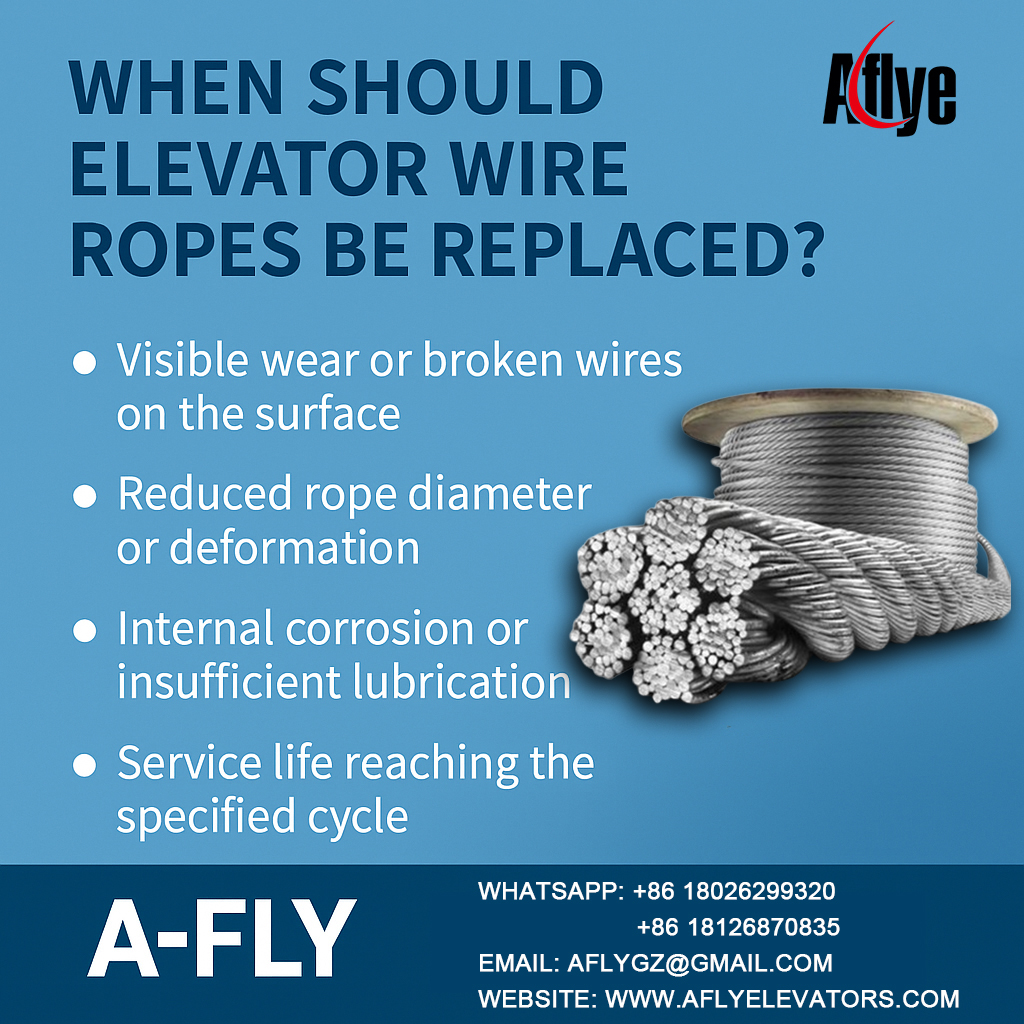When Should Elevator Wire Ropes Be Replaced?
In the elevator operating system, the wire rope is a crucial traction component. It not only bears the weight of the car and passengers but is also directly related to the safety and stability of the elevator. With increasing years of use and frequency of operation, wire ropes inevitably suffer wear and fatigue. If not replaced in time, they may cause safety hazards and affect normal elevator operation.

So, under what circumstances should elevator wire ropes be replaced? Here are the key reference standards:
1. Visible wear or broken wires on the surface
Long-term friction will gradually thin the surface of the wire rope. Once the number of broken wires exceeds the safety standard (usually defined as a certain ratio of broken wires per lay length), it must be replaced immediately. Continuing to use it under such conditions could cause sudden rope failure, posing serious risks.
2. Reduced rope diameter or deformation
Over time, wire ropes may become thinner or flattened due to metal fatigue. If the rope diameter reduction exceeds the specified limit (generally 7–10% of the original diameter), its load-bearing capacity has already declined. Especially when bends, twists, or indentations appear, replacement should be carried out promptly.
3. Internal corrosion or insufficient lubrication
Wire ropes require good lubrication to extend their lifespan, but in damp or poorly ventilated shafts, internal corrosion can occur. If the rope appears blackened, rusty, dull, or produces abnormal noises during operation, this indicates internal damage and requires timely replacement.
4. Service life reaching the specified cycle
Even if the surface looks intact, elevator wire ropes have a designed service life. Generally, the service life of commercial elevator wire ropes is 5–7 years, depending on usage frequency and maintenance quality. Once close to or beyond the design lifespan, proactive replacement is recommended to ensure long-term safety.
5. Failing inspection results
During maintenance, professionals will conduct tension tests, visual inspections, and safety assessments of the wire ropes. If the results show that the rope’s performance no longer meets national or industry standards, immediate replacement is required.
Why timely replacement is necessary
The deterioration of elevator wire ropes often occurs gradually. Early issues may not be obvious, but risks accumulate over time. Timely replacement not only prevents unexpected accidents but also ensures smooth elevator operation and reduces additional maintenance costs.
A-FLY Provides High-Quality Elevator Wire Ropes
As a professional elevator parts supplier, A-FLY’s wire ropes are made of high-strength steel and advanced weaving technology. They feature excellent wear resistance, fatigue resistance, and strong load capacity, suitable for various elevator brands. We offer:
Strictly tested safety assurance
Multiple specifications to fit different elevator models
A professional technical team to provide selection and installation guidance
If you are considering replacing elevator wire ropes, feel free to contact us for the best solution tailored to your needs.
Conclusion: When wire ropes show broken wires, wear, reduced diameter, corrosion, expired service life, or fail inspection, they must be replaced promptly. Choosing A-FLY’s high-quality products and professional services will make your elevator operation safer and more reliable.

